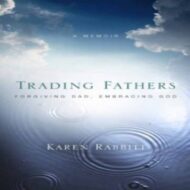During worship last night at small group, I thought, some of us feel we have a court date with God
every day. When we finished singing, and I shared that thought, several people laughed in recognition.
We think we have to appear before the eternal Judge every night,
answering for our daily transgressions, fearing his judgment. Like so many
concepts in our life with God, we get it mixed up. Yes, keeping short accounts
with our Father-God is a good thing. Regular confession keeps us humble.
Agreeing with God regarding our hard hearts helps soften them.
But we do not need to fear sentencing. At small group, I went
on to say, “Our case has already been adjudicated. The sentence has already
been served.” Several agreed, nodding.
That’s easy to say, and it’s easy to nod our heads. To know it in our whole being—body, soul,
and spirit—takes time. And not just the passage of time—deep knowledge takes
experience. We meet with God not in a courtroom but a throne room. Hebrews 4:16 tells us to “approach the throne of grace
with confidence.” As we repeatedly draw close, we will gradually sense the golden
glow. We’ll notice the warm smiles of the attendants. We’ll lift our eyes to
the one raised on the throne to see soft eyes gazing at us. With boldness, we will
rush toward him, assured of his desire to see us. John the beloved, who knew
him best, says his “perfect love casts out fear” of judgment. (I John 4:18) As
we work together towards holiness, we have a standing appointment with Father-God—one
we need not dread.
Father, you love to see us rush toward you. Thank you for making it possible.
